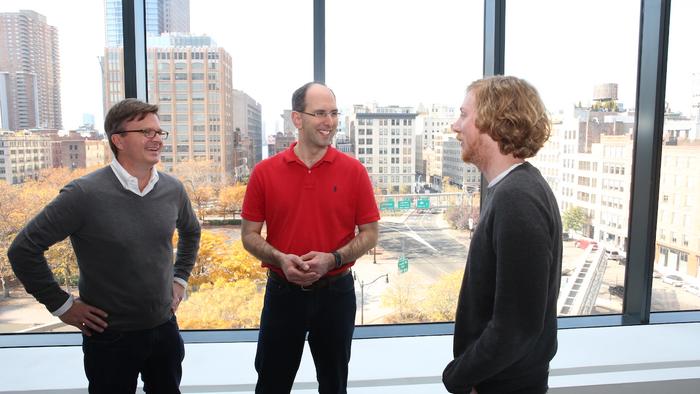

LF, Microsoft and GitHub years before the takeover (Source: Microsoft, via)
LINUX, the world's most widely used kernel, is a technical project. It has always been a technical project. It's also professional and commercial, which the GNU GPL is not incompatible with (au contraire). In fact, about 8 or 9 out of 10 Linux developers are employed (i.e. salaried) to do so, based on the most recent statistics. "90% is kind of [a] guessed number but it's above 80 percent," oiaohm explained yesterday in our IRC channels.
"We don't mean political in the philosophical sense (like GNU) but rather commercial politics (like corporate political parties). It isn't even hard to see it. "As we explained much earlier in this series, Linux had become political. We don't mean political in the philosophical sense (like GNU) but rather commercial politics (like corporate political parties). It isn't even hard to see it.
"At the recent 2016 Linux Foundation Collaboration Summit, we introduced a new open source project called moja global, supported by the Clinton Foundation," said the Linux Foundation in its site a few years ago. One can see the Clintons alongside Mr. Zemlin on many occasions, e.g. [1, 2, 3] (we could see several more) and people told us that Mr. Zemlin kept promoting the Clintons, even pushing for a particular side in the US election in his capacity as Linux Foundation (LF) chief, whose supposed role -- or so says Mr. Zemlin himself -- was to pay Torvalds' salary. This potentially alienates some people who support Linux, yet do not fully support his political viewpoints. The LF also hired political figures from a particular political party. This is why we call it a "PAC".
"This isn't about whether you support software freedom or not. It's not about technical matters but aspects like diversity -- which LF management lies about."The political aspects of the LF are divisive and partisan. This isn't about whether you support software freedom or not. It's not about technical matters but aspects like diversity -- which LF management lies about. These are sometimes used to wedge out actors based on parallel pretexts; it helps tilt development in favour of particular agenda or particular corporations, which may be pursuing lockdown, back doors and various malicious (anti)features.
We are currently waiting for some results to come from members and readers. One of them is assessing, statistically, the impact of the CoC on actual code. Another is investigating a new draft CoC (which is being circulated but cannot be made public just yet). We wrote about it yesterday in relation to coercion -- a form of social engineering (wresting/acquiring greater corporate control over the project, which used to be a lot more community-centric).
"I can't really share that CoC outline right now," a source told us, "but I wish they would get done and publish already. I'm waiting. I have the first draft, if nothing comes out soon - for historical purposes."
"Isn't it time for the LF to consider leadership with technical literacy?"The shaping of these rules can greatly impact the way Linux is developed, who is allowed to participate and what code gets accepted/rejected. It will likely be motivated by corporate sponsors, not geeks. Or shareholders rather than developers.
It's no secret that Mr. Zemlin does not understand code. He never wrote any. He has a career track record which is all about branding and PR, not technical matters. That makes it easier for shrewd -- in the malicious sense -- companies to manipulate the LF. He can speak Japanese, just like Darl McBride from SCO (also not from a technical background), but computer languages aren't his thing. Isn't it time for the LF to consider leadership with technical literacy? ⬆